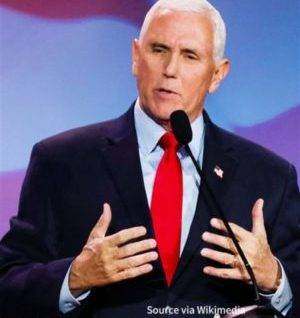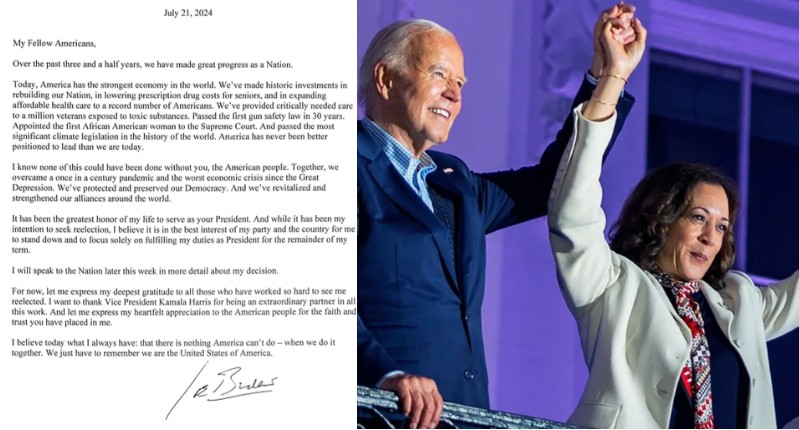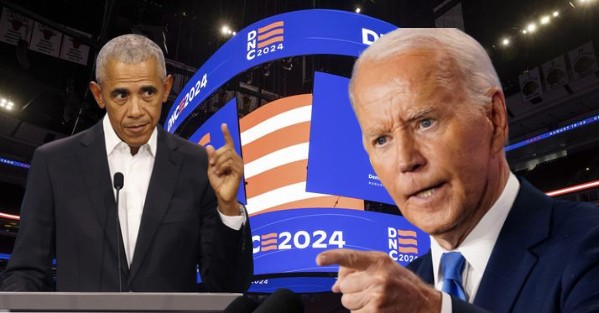Former Vice President Mike Pence has declared his abstention from endorsing Donald Trump for the upcoming presidential election, a decision reflecting the strained relationship between the two prominent figures within the Republican Party. Pence’s stance, articulated during a recent interview with Fox News, underscores the enduring repercussions of the tumultuous events of January 6, 2021, when a violent mob stormed the Capitol building, fueled by baseless claims of election fraud propagated by Trump.
Mike Pence cited the harrowing events of that day, during which he found himself at odds with Trump’s directives to obstruct the certification of Joe Biden’s electoral victory. Reports emerged that Trump had purportedly suggested Pence deserved hanging for his refusal to comply with these demands, further straining their once-cordial alliance. Despite previously pledging to endorse the eventual Republican nominee, Pence’s decision signals a departure from tradition, reflecting the gravity of the rift caused by the events of January 6.
Emphasis on Policy Discrepancies and Legal Entanglements
Beyond the events of January 6, Pence emphasized substantive policy disparities as a contributing factor in his decision to withhold endorsement. Trump’s tenure as president has been marred by controversies, including an array of legal entanglements and civil penalties stemming from his business dealings. Notably, Trump currently faces a staggering 88 criminal charges across four indictments, alongside substantial civil penalties related to allegations of sexual assault.
Mike Pence’s decision to forego endorsement underscores broader ideological discrepancies within the Republican Party, as he seeks to distance himself from the tarnished legacy of the Trump administration. By highlighting Trump’s legal woes and policy shortcomings, Pence aims to carve out a distinct political identity, separate from the tumultuous tenure of his former running mate. As the Republican Party grapples with internal divisions and seeks to redefine its post-Trump identity, Pence’s refusal to endorse signifies a pivotal moment in the ongoing evolution of conservative politics.
Implications for the Republican Party and the 2024 Presidential Race
Mike Pence’s decision not to endorse Trump carries significant ramifications for the Republican Party’s trajectory, particularly as it navigates the lead-up to the 2024 presidential race. With Trump’s intentions regarding another presidential bid remaining ambiguous, Pence’s abstention underscores the fissures within the GOP and the complex dynamics shaping its future direction. As potential contenders jockey for position within the party, Pence’s decision serves as a barometer of shifting allegiances and ideological realignments.
Moreover, Mike Pence’s calculated move could influence voter perceptions and shape the narrative surrounding the Republican Party’s post-Trump era. By refraining from endorsing his former running mate, Pence positions himself as a figure of principled dissent, appealing to moderate Republicans disillusioned by Trump’s divisive rhetoric and legal controversies. As the GOP charts its course forward, Pence’s decision serves as a reminder of the enduring impact of January 6 and the enduring fissures within conservative politics.
Mike Pence accused Trump Divergence from Conservative Principles
Mike Pence’s critique centered on various policy areas where he perceives President Trump to be deviating from the conservative platform. Notably, Pence pointed to the ballooning national debt during the Trump presidency, contrasting it with their administration’s commitment to fiscal responsibility. Furthermore, Pence raised concerns about Trump’s shifting stance on abortion rights, citing the appointment of conservative justices to the Supreme Court as a pivotal moment undermined by subsequent electoral setbacks for Republicans.
Mike Pence’s remarks underscore the growing rift within the GOP over core conservative issues, with Democrats seizing on reproductive rights as a central campaign issue in upcoming elections. The former vice president’s condemnation of Trump’s policy reversals signals a broader ideological struggle within the party, as competing factions vie for control of the conservative agenda.
Impact on Republican Politics and Electoral Strategy
As Mike Pence refrains from endorsing Trump for re-election, his critique has significant implications for Republican politics and electoral strategy. With the GOP fractured over fundamental principles, including fiscal responsibility and social conservatism, the party faces an identity crisis heading into the next election cycle. Pence’s refusal to endorse Trump reflects a deepening divide within the conservative movement, potentially undermining the party’s unity and electoral prospects.
Moreover, Mike Pence’s criticism resonates with a segment of Republican voters disillusioned by Trump’s departure from traditional conservative values. As Democrats position themselves to capitalize on these divisions, the upcoming elections are poised to be contentious battlegrounds, with reproductive rights and fiscal policy emerging as key battlegrounds. The fallout from Pence’s rebuke further complicates the GOP’s efforts to present a unified front, raising questions about the party’s ability to maintain its base of support in the face of internal discord.
Former Vice President Mike Pence’s critique of the Trump administration‘s departure from the conservative agenda reflects broader tensions within the Republican Party. As ideological divisions deepen, the GOP grapples with its identity and electoral strategy, with significant implications for the upcoming elections. Pence’s refusal to endorse Trump underscores the challenges facing the conservative movement, highlighting the need for the party to reconcile competing visions for its future
Table of Contents
Discover more from OGM News NG
Subscribe to get the latest posts sent to your email.













